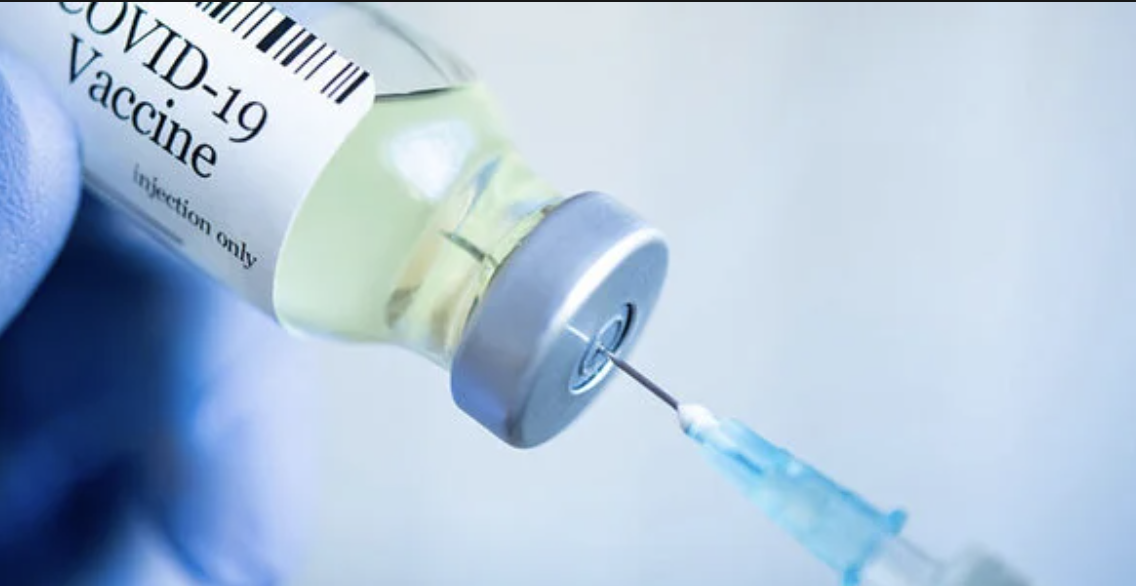A new peer-reviewed study discovered an unanticipated negative effect of the experimental COVID-19 injections, ‘ballooning of the heart.’
The study, ‘Takotsubo Cardiomyopathy Following COVID-19 Vaccine Booster Dose: A Case Report,’ looked at a 59-year-old girl who suffered chest pain days after receiving a Moderna COVID-19 booster.
“Although uncommon, takotsubo cardiomyopathy (TCM) has also been reported following COVID-19 vaccination,” the researchers wrote.
“The number of TCM cases reported following COVID-19 vaccination is not high. Herein, we report a case of TCM induced by the COVID-19 vaccine booster dose.”
More about the case report via Cureus:
A 59-year-old female with a history of hypothyroidism, hyperlipidemia, and celiac disease was brought to the emergency department with sudden onset dyspnea for the last six hours. She also complained of intermittent chest pain for the last two days. The pain was stabbing, progressive with each episode, non-radiating, and worse on exertion with no relieving factors. She received her booster dose of the Moderna COVID-19 vaccine three days ago. She experienced flu-like symptoms after her first dose of the COVID-19 vaccine and was asymptomatic after her subsequent doses. She was compliant with her medications. She had no history of alcohol or substance abuse except for a smoking history for five years, which she quit fifteen years ago.
She was afebrile and oriented to time, place, and person. She had an oxygen saturation of 89% on room air, blood pressure of 150/90 mmHg, and a respiratory rate of 24 breaths/minute. On chest auscultation, she had diffuse lung crepitations with normal heart sounds. The rest of the systemic examination was unremarkable. Arterial blood gas analysis revealed type 1 respiratory failure, and the results of initial investigations are shown in Table 1.
Her COVID-19 polymerase chain reaction (PCR) was negative. An urgent electrocardiogram (EKG) revealed ST-segment elevation in leads V2-V5 (Figure 1). Chest x-ray was significant for pulmonary edema (Figure 2). Transthoracic echocardiography (TTE) showed diminished left ventricular systolic function with an estimated ejection fraction (EF) of 30% and moderate hypokinesia of the apex and anterolateral wall of the heart (Figure 3). She had persistent tachycardia and fluctuating blood pressure, and due to fluid overload, she became hemodynamically unstable leading to cardiac shock. She was commenced on intravenous norepinephrine and dobutamine due to cardiogenic shock. Chest computed tomography (CT) was performed to rule out pulmonary embolism (PE), which was normal. She was brought to the cath lab urgently and underwent coronary angiography, which was unremarkable, demonstrating no thrombotic or obstructive lesion (Figure 4). Cardiac magnetic resonance imaging revealed apical ballooning of the heart excluding myocarditis (Figure 3). A provisional diagnosis of TCM with a TCM risk score of 61 was made, induced by the COVID-19 vaccine, as no other etiology was identified. Her repeat COVID-19 PCR, including blood culture and viral serology, were normal. Her blood culture, viral serology, and autoimmune screening were unremarkable.
🚨 New Report Reveals an Unexpected COVID Vaccine Side Effect: ‘Ballooning of the Heart’
“COVID-19 vaccine…has the potential to cause acute and long-term cardiovascular effects, which include myocarditis, pericarditis, myopericarditis, myocardial infarction, pulmonary embolism,… pic.twitter.com/ytrAzpAI4b
— Chief Nerd (@TheChiefNerd) August 15, 2023
“The symptoms of TCM often mimic those of acute myocardial infarction. Patients may experience chest pain or discomfort, dyspnea, tachycardia or irregular pulse with EKG changes, dizziness, fainting, or low blood pressure, which may indicate coronary artery disease with a raised level of myocardial enzymes in the absence of remarkable coronary artery stenosis on angiography,” the researchers wrote.
“COVID-19 vaccine, especially the mRNA vaccine, can also potentially cause TCM. Although rare, the COVID-19 vaccine is also implicated as an etiology of TCM. A recent analysis highlighted ten cases of vaccine-induced TCM, which include ten female and one male patients. Chest pain was the most presenting symptom, and cases were reported within a week of vaccine administration. All the patients were presented with chest pain or dyspnea and elevated cardiac markers on investigations. EKG changes were dominant in anterior and lateral leads, with an ejection fraction of <50% in all the patients. The length of the hospital stay was not more than two weeks in any patient, and all patients were discharged with no mortality.”
LOOK: New report shows “ballooning of the heart” after Covid-19 vaccination.
A new peer-reviewed report, released on August 10, stated that:
"COVID-19 vaccine also has the potential to cause acute and long-term cardiovascular effects, which include myocarditis, pericarditis,… pic.twitter.com/b0WCWCTQCK
— The Canadian Independent (@canindependent) August 15, 2023
“Our patient presented with dyspnea and chest pain after COVID-19 vaccination and was diagnosed with TCM. She had no identifiable trigger for TCM, including stress, emotional and physical trauma. Her COVID-19 PCR was negative. Moreover, she had no identifiable risk factor for cardiovascular disease, normal creatine kinase level, and absence of obstructive or thrombotic lesion or coronary angiography in the presence of EKG, and echocardiography findings justify that ischemic heart disease was unlikely. Massive immune response after the COVID-19 vaccine may have contributed to the development of TCM,” the researchers wrote.
Read the full study at Cureus.


